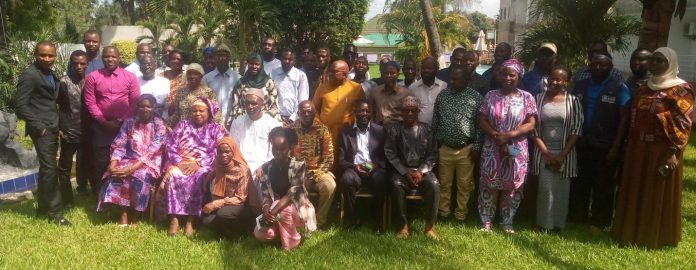By Ndey Sowe
The Executive Director of the National Nutrition Agency (NaNA), Mr. Malang N. Fofana, has raised alarm over The Gambia’s growing struggle with a ‘Triple Burden of Malnutrition’, a situation where under-nutrition, over-nutrition, and micronutrient deficiencies exist simultaneously within the population.
Speaking on Tuesday, 29th July 2025, during the validation of the national Preparedness Plan for Food and Nutrition Security Crises at the Metzy Hotel in Kotu, Mr. Fofana revealed that while progress has been made in reducing undernutrition, the country is now grappling with rising rates of overweight, obesity, and diet-related non-communicable diseases (NCDs).
“There has been an improvement in reducing undernutrition over the years, but the prevalence rates are still unacceptably high,” he said, citing that stunting has dropped from 24.5% in 2013 to 17.5% in 2019–2020, wasting from 12% to 5%, and underweight from 16% to 12%. Additionally, anaemia in women has declined from 60% in 2013 to 44% in 2019–2023.
However, Mr. Fofana noted with concern that indicators related to over-nutrition are deteriorating rapidly. “Overweight and obesity in women increased from 23% in 2013 to 36% in 2019 and 2020,” he disclosed. He attributed the rise in diet-related NCDs such as diabetes, hypertension, and cancer to changing lifestyles and increasing consumption of processed foods high in fat, sugar, and salt.
The two-day forum brought together members of the Food and Nutrition Taskforce, which includes stakeholders from the food and nutrition security sector as well as representatives from partner institutions across the country. The gathering provided a platform to finalize and validate the Preparedness Plan, ensuring it is inclusive, multi-sectoral, and responsive to the realities of food and nutrition insecurity in The Gambia.
Mr. Fofana emphasized that food crises have far-reaching consequences, including inter-generational health issues, stunted growth in children, behavioral and educational setbacks, and social instability, all of which hinder national development.
To address these challenges, he said the Government of The Gambia has put in place various structures, policies, and strategies. However, he stressed that successful implementation requires strong collaboration with development partners and donor support.
He revealed that The Gambia recently received approval for a US$20 million grant from the World Bank’s Crisis Response Window (CRW) Early Response Financing (ERF) as part of the Gambia Resilience, Inclusion, Skills, and Equality (RISE) Project. “One of the key conditions of this grant is the development of a Preparedness Plan for Food and Nutrition Security Crises,” he explained.
In response, NaNA led a national task force comprised of experts from multiple sectors to work with a consultant in drafting the plan. Mr. Fofana said the plan aims to enhance the country’s capacity to identify, coordinate, and respond quickly to food and nutrition crises through a well-defined early warning system and targeted intervention strategies.
He called for a united national effort: “The concerted participation of central government, regional authorities, civil society, development partners, and the private sector is critical to the successful implementation of this plan.”
The plan outlines short-, medium-, and long-term measures designed to improve food and nutrition security for all Gambians.
Professor Modou Sowe from the Central Project Coordinating Unit under the Ministry of Finance and Economic Affairs, a key supporter of the initiative, reaffirmed his office’s commitment to strengthening food and nutrition security systems, which he said are essential to improving the lives of vulnerable populations.
Also speaking at the event, Deputy Permanent Secretary at the Office of the Vice President, Fanding Kinteh, described the plan as a vital policy document aligned with the government’s vision of achieving universal food and nutrition security.
The lead consultant, Dr. Amadou Sowe, disclosed that the drafting process was informed by a nationwide consultation to ensure that the final document reflects the lived realities and priorities of Gambians and is tailored to address the country’s specific challenges.


















